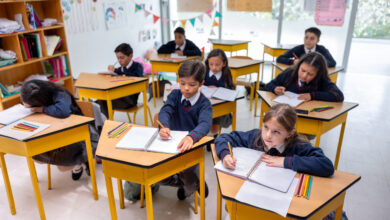Health+WellbeingIn The ClassroomOpinionTop Stories
In 2020 our schools need R U OK? Day more than ever: Opinion

In 2020, the issue of mental health is high on the agenda for schools around the country. With a global pandemic adding a large dose of extra anxiety into the lives of our students and staff alike, talking about our emotions and asking R U OK? is more vital than ever before.
Please login below to view content or subscribe now.





